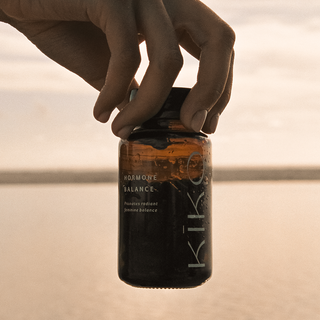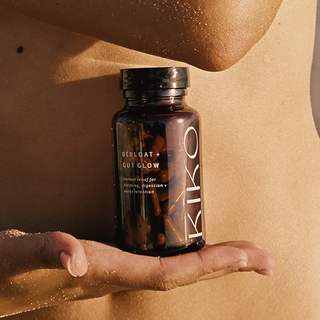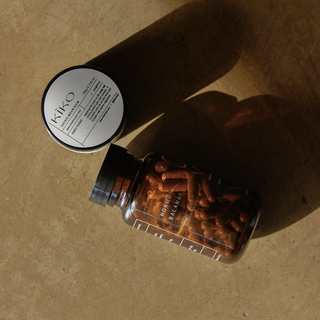
Irregular periods are a common issue many women face, often leading to stress and confusion. While occasional irregularities are normal, consistent irregularity may indicate an underlying issue. Fortunately, natural remedies can help regulate your cycle. Diet and lifestyle play a crucial role in hormonal balance, which directly impacts menstrual regularity. We explore various natural ingredients and lifestyle tips that can help to support a regular menstrual cycle…
Examining the Cause
Irregular periods, or oligomenorrhea, can be caused by various factors such as stress, significant weight loss or gain, hormonal imbalances, and certain medical conditions. Managing these through natural means involves a holistic approach, including dietary adjustments, herbal supplements, and lifestyle changes.
Diet & Supplement Tips for Regulating Your Period
A balanced diet rich in specific nutrients can help to regulate your menstrual cycle by supporting hormonal balance. Here are some key nutrients and foods to consider:
1. Dong Quai
Known as the "female ginseng," dong quai is an herb traditionally used in Chinese medicine to treat menstrual irregularities. It’s believed to improve blood flow and support uterine health. You can consume dong quai as a tea or in supplement form.
2. Black Cohosh
Black cohosh is another herb commonly used to alleviate menstrual irregularities, particularly in women experiencing perimenopause. It helps to balance estrogen levels and can be consumed as a tea or in capsules.
3. Zinc
Zinc is a crucial mineral for reproductive health, playing a role in the regulation of the menstrual cycle and the synthesis of hormones like progesterone. Foods rich in zinc include pumpkin seeds, chickpeas, and cashews. You can also take zinc supplements, just be sure not to exceed the recommended daily allowance.
4. Chaste Berry (Vitex)
Chaste berry, also known as Vitex, is widely used to treat premenstrual syndrome (PMS) and irregular periods. It works by stimulating the pituitary gland to increase progesterone levels, thereby promoting regular cycles. It’s conveniently available in tincture or capsule form.
5. Ashwagandha
Ashwagandha is an adaptogenic herb that helps the body manage stress, one of the leading causes of hormonal imbalance. Regular intake of ashwagandha can help regulate cortisol levels, thereby supporting menstrual regularity. You can add ashwagandha powder to smoothies or take it in capsule form.
6. Maca
Maca root is another adaptogen that supports hormonal balance. It’s rich in vitamins and minerals that nourish the endocrine system, which is responsible for hormone production. Maca can be taken as a powder added to smoothies or in capsule form.
7. Red Raspberry Leaf
Red raspberry leaf is rich in vitamins and minerals that support uterine health and tone the muscles of the pelvic region, which can help regulate menstrual cycles. It is often consumed as a tea.
8. Magnesium
Magnesium is vital for muscle relaxation and can help alleviate menstrual cramps. It also plays a role in regulating hormones and improving sleep, which is crucial for overall hormonal health. Foods rich in magnesium include dark leafy greens, nuts, seeds, and whole grains. Magnesium supplements are also available and can be taken in the evening to promote restful sleep.
9. Vitamin E
Vitamin E is a powerful antioxidant that helps balance hormones and reduce PMS symptoms. It’s found in foods like almonds, sunflower seeds, and spinach, and is also available in supplement form.
10. B Vitamins (B6, B3, B5)
B vitamins are essential for hormone production and energy metabolism. Vitamin B6 helps balance estrogen and progesterone, vitamin B3 supports adrenal health, and vitamin B5 aids in stress management. These vitamins are found in foods like whole grains, eggs, and leafy greens. B complex supplements are a convenient way to ensure you’re getting enough of these vital nutrients.

Did You Know?
The Kiko Vitals Hormone Balance is a powerful all-in-one supplement that includes all of the above ingredients in an expert formulation to help you regulate your cycle and support your overall hormone balance.
Lifestyle Tips for Regulating Your Period
In addition to dietary changes, certain lifestyle adjustments can significantly impact menstrual regularity:
1. Manage Stress
Chronic stress can lead to hormonal imbalances that disrupt your menstrual cycle. Practices such as yoga, meditation, and deep breathing exercises can help manage stress levels. Regular physical activity also promotes the release of endorphins, which improve mood and reduce stress.
2. Maintain a Healthy Weight
Being underweight or overweight can affect your menstrual cycle. Aim for a balanced diet and regular exercise to maintain a healthy weight, which can help regulate your periods.
3. Get Adequate Sleep
Sleep is essential for hormonal balance. Aim for 7 - 9 hours of quality sleep each night to support your body’s natural rhythms. Poor sleep can disrupt the release of hormones like cortisol and melatonin, which are crucial for regulating your cycle.
4. Stay Hydrated
Adequate hydration is crucial for overall health and can help ease menstrual symptoms. Drink plenty of water throughout the day and limit caffeine and alcohol, which can dehydrate you and exacerbate PMS symptoms.
Conclusion
Managing irregular periods naturally requires a comprehensive approach, including dietary changes, herbal supplements, and lifestyle modifications. Incorporating nutrient-rich foods and supplements like dong quai, black cohosh, zinc, and ashwagandha, alongside stress management and proper sleep, can significantly improve menstrual regularity. By taking a holistic approach, you can support your body’s natural cycles and enjoy better overall health.




